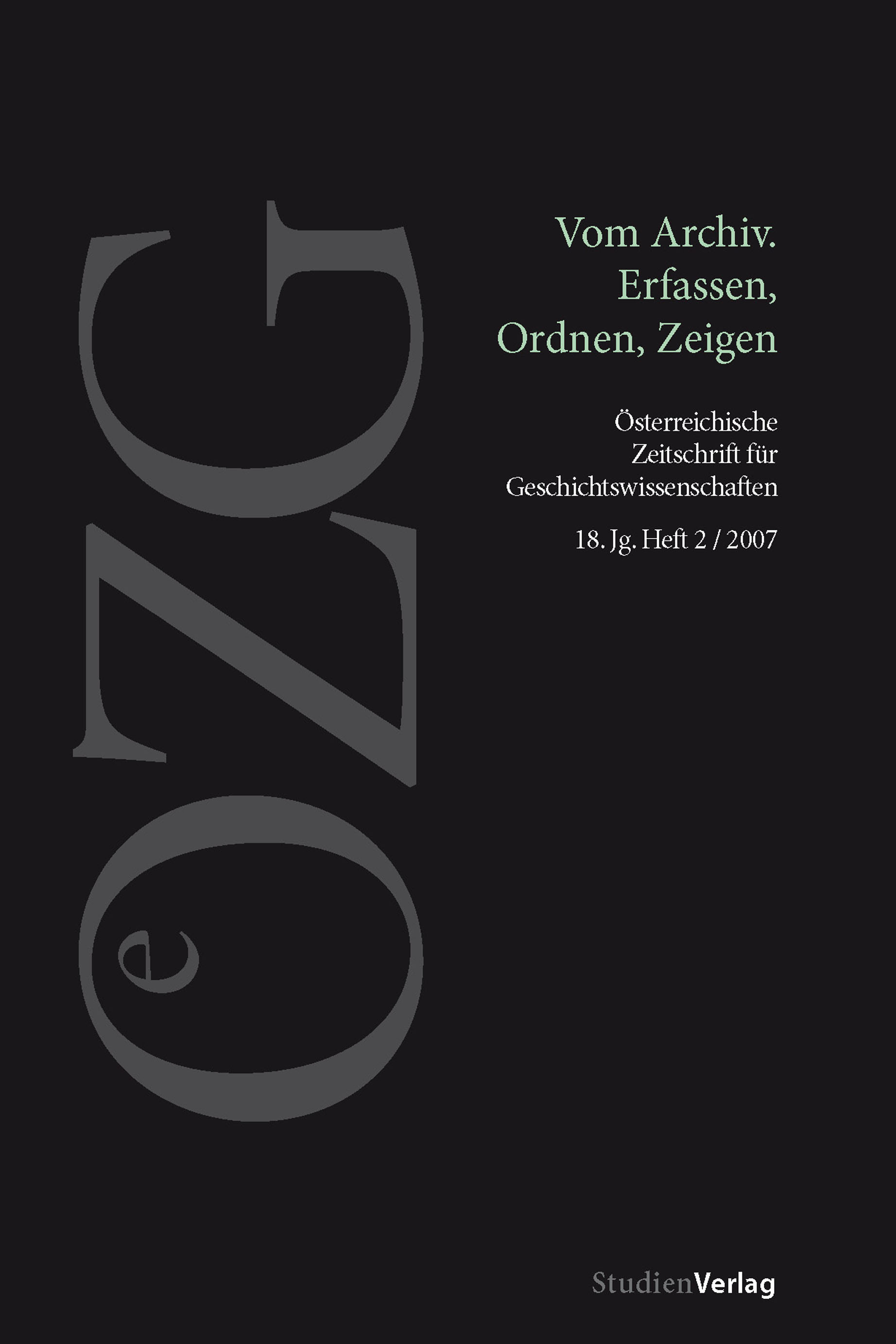Die volkseigenen Akten – materielle und diskursive ›Spuren‹ staatlicher Archive der DDR
DOI:
https://doi.org/10.25365/oezg-2007-18-2-3Abstract
The article presents an interpretation of material and discourse traces of the national archives in the GDR. The historical importance of archives and their crucial role in providing material for the representation of the past was clearly seen by the ruling elites of the GDR. According to the official archive policy, particular files were renamed, particular materials edited and other files, considered to be less, important destroyed. What is more, the central archive administration embarked on socialistic archival revolution in order to destroy the traditional historical order of files and adjust it to the state’s official ideology. This dream of socialist archives points to the outstanding significance attributed to the traces of the past and its institutions. The national archives of the GDR were based on ideological plan due to the Cold War and the contentious competition against its neighbouring German state, the FRG. However, as I am able to show, the archival policy underwent a crucial change in the 1970s since the revolutionary measures faced severe practical difficulties. The revolutionary dream gave way to a programme which, less politically loaded, aimed for more efficient control and standardization of the archivist’s practice.


